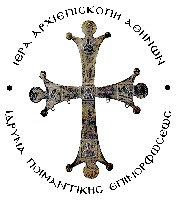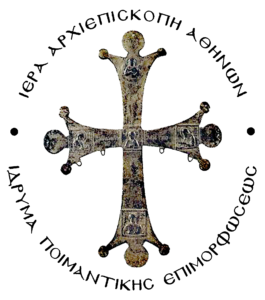An Overview of Educational Courses over the period 2013-2020
Educational Courses run by the Institute over the period 2017 – 2020
Between 2017 and 2021 IPE implemented with complete success the Operation entitled “Skills Development of the Workforce of Social Welfare Services with emphasis on Church Departments”. The aim of the Operation was to provide training in one of the 10 available thematic units for clergymen, lay staff and volunteers totaling approximately 7200 participants within the boundaries of the Greek State in order to enhance their work in social welfare and other Church institutions. The objective of the Operation was to improve and enhance their social skills so that they may meet the challenges presented by contemporary ecclesiastical, intellectual, spiritual, social cultural and technological developments. Carrying out the Operation entailed the creation of 240 courses distributed over the country’s 13 Regions. These courses are to be concluded in the coming month of the year 2021 and focus on one of the following thematic units:
- Church welfare interventions to heal and manage family and marriage issues
- Church welfare support for children and adolescents
- Church welfare support for the sick and their families
- Church welfare interventions for mourners and grievers
- Managing family tensions.
- Topics in preventing and dealing with domestic violence
- Modern approaches to mental health issues
- Topics in caring for persons with chronic diseases
- Training in dealing with cutting-edge social welfare issues
- The Parish as a local development and social welfare support cell
As part of this Operation, 261 courses were completed throughout Greece, taught by 172 Instructors for a total of 7,308 teaching hours, with 4,134 clergymen and 2,597 laymen (1,488 women – 1,109 men) taking part. It is worth noting that many of these courses took place in the border areas, thus further amplifying the effects of the outstanding work of the Church already materializing there.
Instigated by the adverse circumstances arising from a pandemic unprecedented in living memory, the IPE, concurrently with the aforementioned activities, resorted to the possibilities afforded by relatively recent technological advances. Since the early days of the pandemic (June 2020) to the present time (November 2021) 83 synchronous distance learning courses, open to anyone interested, have taken place attracting 2,195 participants. Through these educational initiatives the Institute fostered educational interaction offering to every participant an opportunity for research in a unique and trying period.
We must also stress that these thematic units were regarded as both topical and essential by participating clergymen and laymen who hailed from every corner of Greece as well as foreign countries (participation was limited to those with a Greek tax record) and from a number of different professions including teachers, policemen, nurses, social workers, psychologists, lawyers and other members of the legal profession, civil servants as well as employees in the private sector, etc. It is worth mentioning that the participants were given the opportunity to discuss with seasoned experts as well as amongst themselves a number of issues that arose and unfolded as the courses were taking place. The questionnaires completed after the end of each course by the participants highlighted just how topical and essential the subject matter was.
Educational Courses run by the Institute over the period 2013 – 2015
More specifically, between 2013 and 2015 the Institute implemented with complete success the Operation entitled: “Lifelong Learning Programmes for the development of the Social Skills of the Clergy, Lay Officers and Staff of the Church” (MIS 453172), as part of the Operational Programme “Education and Lifelong Learning”. The Programme’s aim was to provide training for 1,000 clergymen and lay staff, so that they may deal more satisfactorily with the severe and constantly intensifying problems arising both in ecclesiastical departments and in facilities where the Church has an input, such as hospitals, welfare foundations, prisons etc. Along these lines, 40 training courses, each focusing on one of the following themes, took place in the Holy Archdiocese of Athens and the Holy Metropolitan Diocese of Lagadas, Lete and Rentine:
- Contemporary pastoral approaches to marriage and family
- Pastoral approach to children and adolescents in modern reality
- Modern ways and methods of providing succour and pastoral care to grievers and mourners.
- Modern ways and methods of providing succour and pastoral care to the sick and their families
- Instruction courses on how to devise cultural programmes based on theological texts.
Instruction courses on how to devise cultural programmes focusing on peace and solidarity




